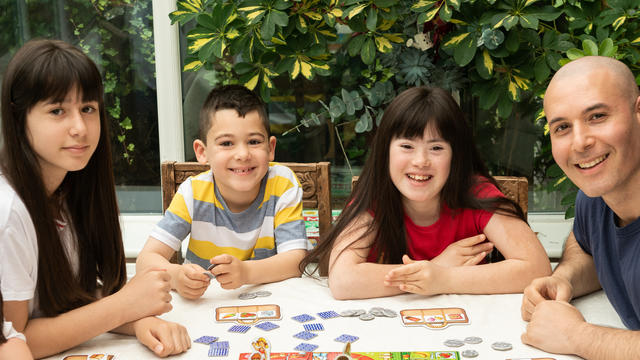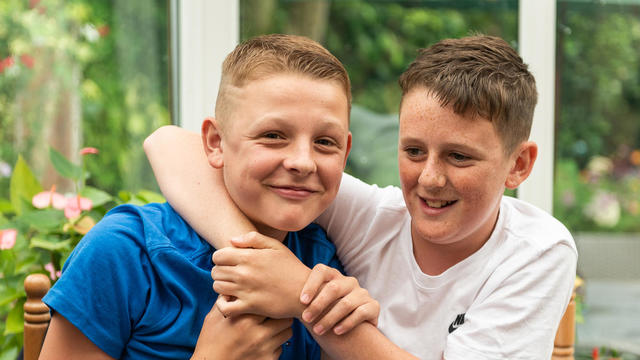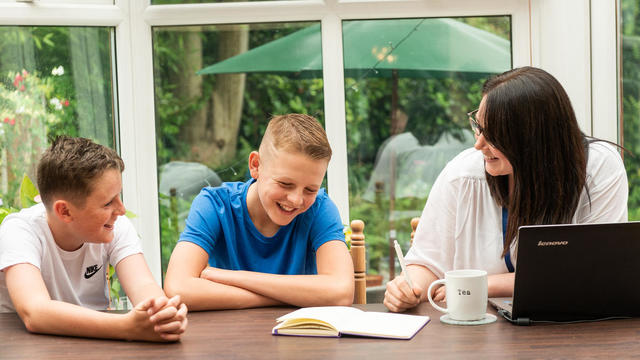Mental Health Awareness Week: What’s the status of children’s mental health services in the UK?

In March 2024, the Children's Commissioner published a report on children's mental health services.
In light of Mental Health Awareness Week, this blog outlines some of our mental health policy positions and the link to the Children Commissioner's recommendations.
Prevalence
- Approximately 1.4 million children and young people have a probable mental health condition in England, a slight increase from 1.3 million in 2022.
- In 2023, around 1 in 5 children (20%) had a probable mental health condition, a 12.5% increase from 2017.
- For the 270,300 children and young people still waiting at the end of the year for their second contact with CYPMHS, they waited an average of 142 days (median) or 359 days (mean) (Children's Commissioner Report, 2024).
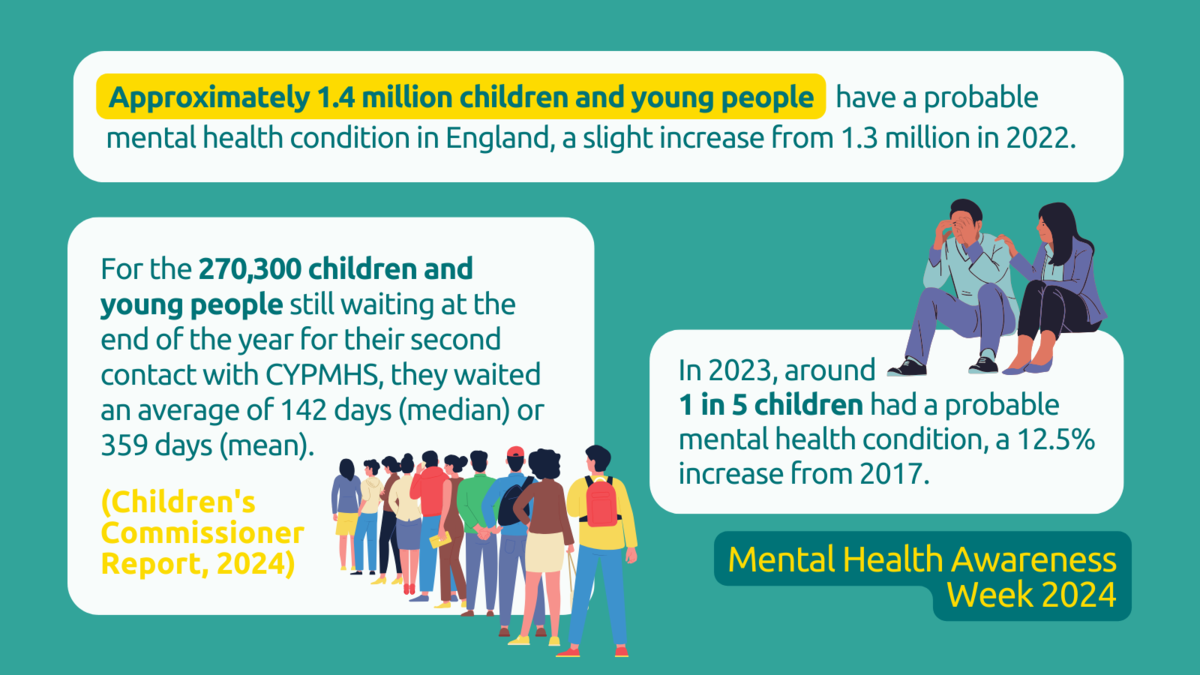
Address drivers of poor mental health
Factors such as poverty increase the risk of mental health problems while being a causal factor and a consequence of mental ill-health itself (Mental Health Foundation, 2016).
We asked the government to take supportive actions for marginalised groups and address the drivers of poor mental health (Together Trust's consultation response).
We were happy that the Children's Commissioner also recommended that the government ensure that no child lives in poverty.
A 10-year plan for children and young people's mental health
In 2022, we responded to the government's consultation on the 10-year mental health plan. Unfortunately, the government scrapped the plan and decided to incorporate the mental health plan into the Major Conditions Strategy, which includes plans for chronic health conditions such as cancer or dementia (Barclay, 2023).
The Children's Commissioner also asked for a 10-year plan for children and young people's mental health and well-being.
The Major Conditions Strategy has yet to be published. However, we are afraid that a ‘one-size-fits-all strategy’ will fail to adequately address a rapidly escalating crisis in mental health.
Early intervention
In our feedback to the government, we proposed a nationwide rollout of early support hubs in all communities, along with incorporating within Family Help services training, resources, and support for recognising and addressing signs of mental health issues.
Also, the Children's Commissioner asked for Early Support Hubs in every local area, in collaboration with Family Hubs.
Family hubs are currently only available in certain parts of England. Find out whether you have a local family hub here.
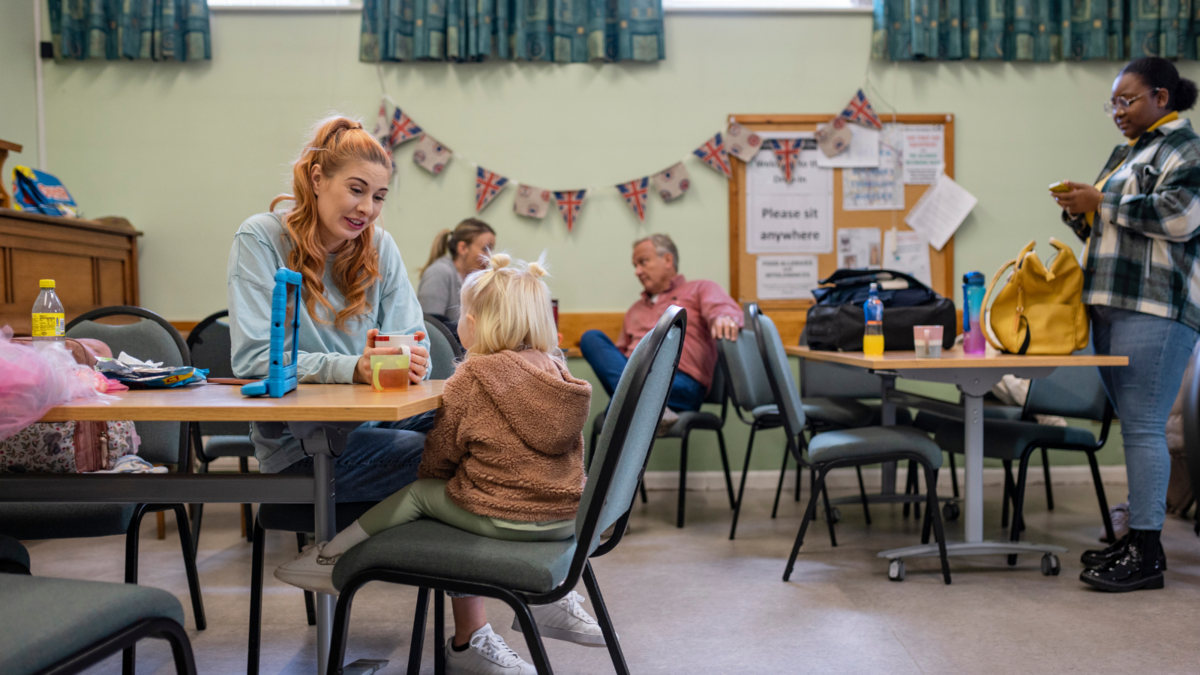
Moreover, a network of around 70 early support hubs currently exists across the country. In February, the government announced extra funding for 24 additional hubs. This is a positive step in improving access to children and young people with mental health needs. However, we hope that a national rollout which is sufficiently funded follows.
Furthermore, we urged the government to ensure full coverage of Mental Health Support Teams (MHSTs) in schools and to extend MHST interventions beyond Cognitive Behavioral Therapy (CBT). The Children's Commissioner also endorsed the nationwide expansion of Mental Health Support Teams (MHSTs).
In January 2024, the Government said the roll-out of Mental Health Support Teams is aimed to extend to an estimated 44% of pupils and learners by the end of the financial year 2023/24, and at least 50% by the end of March 2025. It also said that over 14,400 settings have claimed a grant to train a senior mental health support lead.
Understanding and responding to the prevalence of need
The Children’s Commissioner is advocating for the continuation of the NHS England prevalence survey on children and young people’s mental health. Furthermore, she is urging for the national picture of need to be guided by the Integrated Care Board’s (ICBs) Joint Strategic Needs Assessments (JSNAs).
This approach will provide a comprehensive understanding of children's distinct needs based on location and demographics. It aims to establish a government funding formula that effectively and sustainably addresses the demand for mental health services for children.
Also, we asked the government to invest in research to understand better the reasons for poor mental health presentation and evidence-based approaches for children and young people with SEND and complex needs.

Reducing waiting times for mental health services
“I've waited a year for my [autism] assessment, and I waited two years before that for my admission to CAMHS.” – Girl, 16 (Children's Commissioner report, 2024)
Our position is that the government must end CAMHS delays and extend support until people are 25-years old. We also asked the government to focus on improving post-16 outcomes for people with disabilities and complex needs.
The Children's Commissioner advocates for timely mental health support for children, proposing a maximum four-week wait for assessment and treatment in Children and Young People Mental Health Services (CYPMHS).
Additionally, she wants to see improvement in pathways of support for children and young people with autism, ADHD, and neurodiversity who have mental health, emotional and behavioural support needs.
The Children’s Commissioner announced that she will soon publish further research into neurodiverse children's experiences of support in health services.
Reform the Mental Health Act 1983
Lastly, the Children's Commissioner recommends the reform of the Mental Health Act, to accelerate the decrease in the number of children being inappropriately detained and restrained in mental health hospitals, and the shift towards supporting children at home or in the community.
We also asked the government to reform this legislation. Unfortunately, during the King’s Speech last November, it was announced that there will be no reform before the next election.
Our thoughts
We were pleased to find that our mental health policy views closely match those of the Children’s Commissioner. It is crucial for mental health to be a top priority on the government's agenda. We are optimistic that implementing these recommendations will significantly impact the mental health and wellbeing of children and young people.
Your support is invaluable!
Check our website for more info on our policy work for mental health.
Sign up here for our latest policy and campaigning updates and opportunities.

